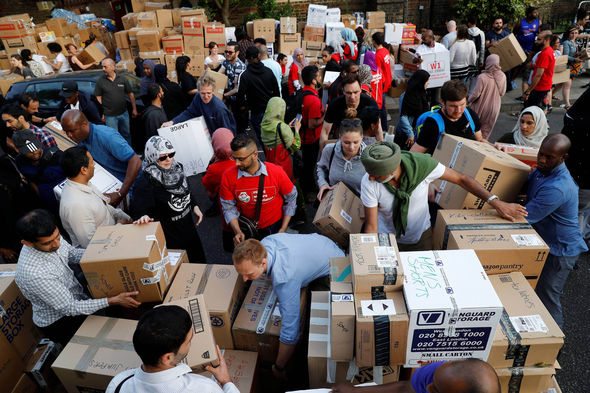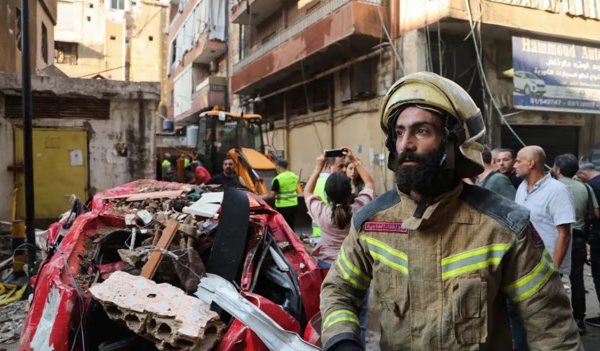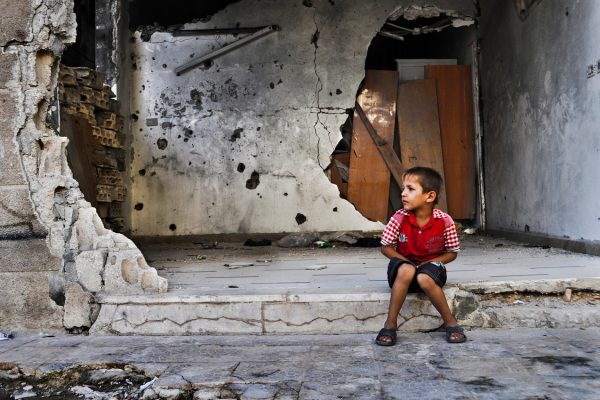Here are seven lessons we can derive from Islamic traditions.
Here are seven lessons we can derive from Islamic traditions.
The Grenfell Tower tragedy has truly shaken the London community and two clear observations can be made. Firstly, through such an atrocity the true and vivid colours of humanity have shone brightly during such a bleak and dark time. Secondly, the questions thrown up regarding leadership, responsibility, social equality and justice have echoed to a deafening degree. Even the victims have yet to be provided with any real answers.
It begs the question, therefore, how does the religion of Islam offer solutions and practical ways to deal with such a catastrophe before, during and after its occurrence?
Here are seven lessons we can derive from Islamic traditions:
1. Charity
The emphasis on charity within Islam is profound, and the charitable nature of the various local Muslim and non-Muslim communities in response to Grenfell was loud and clear. Indeed, both the Quran and hadith (narrations) have highlighted the need to give charity as a moral trait – one which has benefits both in this world and the hereafter.
“Those who spend their wealth [in Allah ‘s way] by night and by day, secretly and publicly – they will have their reward with their Lord. And no fear will there be concerning them, nor will they grieve.” – The Holy Quran 2:274
Don’t be mistaken though, charity need not come in a monetary form. It can be something as simple as offering food, a consoling shoulder to cry on, a kind word, or even a smile. The incredible and positive response to the Grenfell disaster has seen a vast surplus in food and toiletries donated: This speaks volumes about the innate nature of the human.
2. Neighbours
Not only does Islam place a huge importance on charity, but the rights given in honour of the neighbour are equally noteworthy.
“Worship Allah and associate nothing with Him, and to parents do good, and to relatives, orphans, the needy, the near neighbour, the far neighbour…” Holy Quran 4:36
Numerous hadith (narrations) have been recorded regarding the need to honour, protect and build bridges with one’s neighbour. One hadith even mentions that these rights extend to your neighbours forty to the right and forty to the left of you, showing the scope of these rights. It seems very sensible, therefore, to surmise that the messengers came to shape communities in such a way that the love, care, and bonds built between them, regardless of religion or culture, would allow mankind to flourish.
Consider history – and in particular, the poignant event of the coming together of the Ansar and Muhajiroon following the Prophet Muhammad’s migration from Makkah to Medina. It shows us how important union, brotherhood and social cohesion is in the eyes of God.
The beauty of the fact that the neighbourhood helped those affected in West London should act as a lesson instilled and practised at all times – and not just when times are especially difficult.
One of the most striking narrations in regards to caring for one’s neighbour, relayed by Ali ibn Abu Talib, is as follows: “Fear and keep Allah in view in regards to the neighbour, because they were the subject of your Prophet’s advice.” He continuously advised in their favour such that we thought he would allow them “a share in inheritance”.
3. Equality and equity
The Grenfell Tower, and many other similar high-rise estates have often been subject to poor maintenance. Yet it is a shame that only after the tragedy has struck that there is a sudden need for enquiries and reports. An example is the Lakanal House towers, which were subject to a fire in 2009. Ironically, just a mile or two from Grenfell, lie state of the art flats, worth approximately £1m each in value. Reports indicate the poor choice of cladding and the failure to install fire sprinklers in the Grenfell flats. It would have cost just £140,000 to retrofit all 120 flats with sprinklers. This neglect has led to many angry calls for equal treatment for less affluent members of society.
Rewind to the time of the Prophet (Peace and blessings be upon him) and see how he used to treat people without any bias or prejudice. He acted equally with all members of society to permeate a sense of unity and belonging. The well-known saying of Ali ibn Abu Talib encapsulates the Islamic philosophy of equality perfectly: “Man is of two kinds, he is either your brother in faith or equal in humanity”.
Indeed Islam has nothing against being rich and wealthy – quite the opposite in fact. However, it places an importance on equity within a society which simultaneously promotes business and good earning and the rights of all. When one considers the concepts of khums and zakat (obligatory religious dues), they are there to not only encourage the sense of charity and equity but also discourage the practice of hoarding by the upper echelons of society. By ‘taxing’ believers on their accumulated savings for the year, and distributing it to the needy, it encourages people to give rather than hoard, and also provides more equity than just equality in terms of contribution.
As someone once said, “Taxes are the price we pay for a civilised society.”
4. Transparency and accountability
Be it a messenger of God, a community leader, a politician, a parent or someone of any profession: each one of us has a responsibility to society, ourselves and ultimately towards God. The Prophet (Peace and blessings be upon him) came to perfect man’s morality, and as such he was the first to undertake the responsibility of being accountable. In fact, from early on in his life, he was referred to as Al-Amin (the trustworthy) and As-Sadiq (the truthful), even by his enemies and foes.
Unfortunately, most politicians, governments, and world leaders today don’t seem to inculcate this noble trait, despite the fact that they work for and are employed, or elected, by the public.
In addition, the victims of Grenfell are still in need of money and places to stay – despite the numerous donations and pledges, and apparent intervention from the council. From the numerous videos and interviews of those suffering from the Grenfell fire, it has become clear that they require answers from those in office – but the council are seemingly invisible and avoiding the public light. Political office – whether it be Prime Minister, member of parliament or councillor – brings enormous responsibility, especially as many depend on the thorough, transparent and robust fulfilment of the roles.
Indeed, Ali ibn Abi Talib has said, “Every single person is answerable for what he possesses and for all those who depend on him.” During his caliphate, there were numerous occasions when he showed the highest levels of responsibility and integrity, including an instance where, as the caliph, he was willing to be taken to court after being (falsely) accused of misappropriating someone’s shield. Despite knowing very well he was innocent and having the power to get such a case quashed as caliph, Ali did not flinch in allowing justice to take its due course. In court he even insisted that he be referred to by his name and not title, so as not to allow any bias to seep into the proceedings. This level of integrity and responsibility is what society is yearning for in order to establish a government that works effectively and honestly, and hence avoid such tragic mistakes or the appearance of a cover-up.
5. Social strata
As was highlighted in the recent general elections, and something that is resonating quite clearly with the West London community in particular, the class divide is beginning to become very stark. Its detriment to society is undeniable.
On the one hand you had a Prime Minister, seen to be an elitist by many, arrive with a security entourage, barely interacting with any victims or local members of society, and on the other, a man who has stood for social justice for decades arrives and blends in with the locals seamlessly – offering support and words of solace and comfort. Whilst the former was vilified due to her insensitive actions, the latter stood out as a man many have sought after to lead the British people.
A story from the Prophet Muhammad’s time comes to mind. Whilst in a gathering, a poor man dressed in rags joined the congregation and found a space next to a rich aristocrat. At the sight of him, the wealthy man folded his diaphanous garbs so as to avoid the poor man from touching or sitting on them. Witnessing this, the Prophet (Peace and blessings be upon him) admonished such arrogance by asking if the aristocrat thought he would be infected by the man’s lack of wealth, or if somehow he would lose a portion of his wealth by coming in contact with a man of lower social status. After admitting his mistake and offering half his wealth, the poor man rejected it, explaining he’d rather remain poor and maintain integrity than end up with the manner of pomp and pride.
Fast forward to today, and only a short walking distance away from the Grenfell tower, you see many properties being kept unoccupied for long periods of time (commonly known as ‘land banking’) by those who are able to afford to do so. This perception of the rich versus the poor goes against the very purpose of human beings, who are designed to live cohesively, offering selfless support at the time of need. The Qur’an has stressed that it is not the wealth or race of a person that will have weight in the eyes of God, but rather his actions and piety.
6. Humanity
God has made humans with an innately soft heart towards one another, and this was never clearer than in the overwhelming response to the Grenfell Tower victims. Be it food, money, bedding, clothes, emotional and medical support, prayers or just turning up as a mark of respect and support, from London or to the North of the UK, the awakening of hearts was phenomenal. People from various communities, religious and cultural backgrounds, age ranges and professions showed up out of complete selflessness to answer the call of the victims.

The virtues of compassion and care were among the highest characteristics of the Prophet (Peace and blessings be upon him) and his message. Be it the visiting the orphans and needy, attending to the sick, having honor in mixing with the poor or having a soft heart and tongue, the Prophet (Peace and blessings be upon him) truly was a mercy to mankind. His life is filled with stories and anecdotes which exemplified the beautiful traits he would preach about. The famous story of the Prophet (Peace and blessings be upon him) visiting the lady who used to throw garbage at him, due to her absence one day out of sickness, shows what a beautiful heart a human can have. Such examples need to be the basis for our moral reformation.
7. Islamic responsibility
Although the humanitarian response from the local and wider community was breathtaking, this is surely what was required and ought to have been the case. It would be a sad day and state of affairs when victims of such an avoidable fire were left to fend for themselves. Although such depravity already exists in places such as Yemen, where the populous has been forgotten and gone unnoticed, the heart of humanity is still beating hard – at least locally.
However, what is the expectation and duty of a Muslim? Surely, a Jew, Sikh or an atheist who attended to the needs of the Grenfell victims are just as good and humane in the eyes of God? No doubt, the acts of every human is witnessed by God and will be given the reward by God, so it is not for anyone to judge the actions of others, but Islam is not just about attending to needs when the occasion arises. The Prophet came to overturn and bring life back to hearts of a society which had lost its way. Indeed, the aim is to be generous, compassionate and charitable every day and every moment of your life. Moreover, once such noble traits are inculcated within you, then you will have earned the station of a true Muslim (one who submits to God) and servant (‘abd) of God, as through the service of God’s creation, you will be serving Him.
The Grenfell fire is a tragic event that everyone can learn from. Moreover, the Prophet brought Islam as a religion or peace and harmony, designed to perfect morals, so that tragedies in society can be prevented. Let this holy month of Ramadhan be the springboard for self-purification and reform, so that we may be honoured to be of service to God’s creation in the good times and the bad.
And surely God is the All-Knowing.





